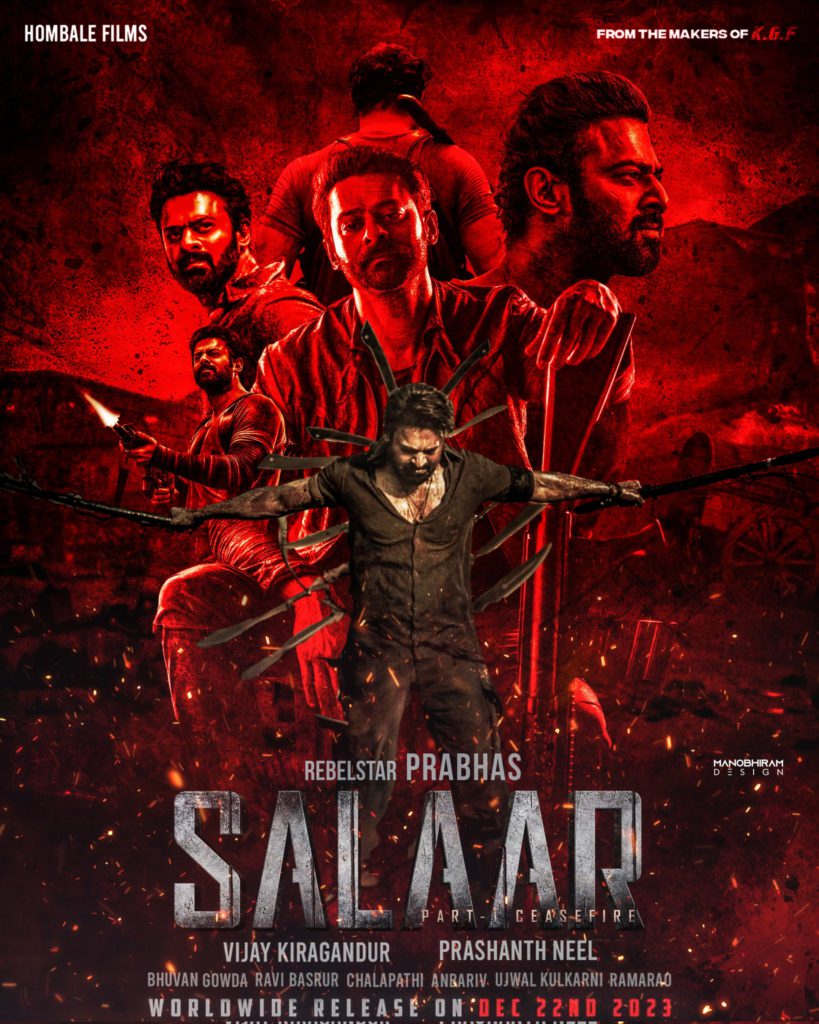One-Line Review: Prabhas gets a break from disasters with Salaar, but is it worth a watch??
Introduction
What makes two best friends turn into two biggest enemies?
“Prabhas’ violence-riddled film is all noise, meaning very little.”
~ Indian Express
Our rating for Salaar is 6/10.
Summary
In the city of Khansaar, which is ruled by three tribes, two friends, Deva and Varada will be present. Varada belongs to the Mannar tribe. Varada once saves Deva’s mother from the Mannar goons sent by his father by offering them territorial control of a big chunk of land he owns. He also sends Deva away for his own safety. While leaving, Deva pledges that he will be back in Khansaar whenever Varada needs his help.
Years later, Aadhya Krishnakanth, daughter of Krishnakanth lands in India, and immediately the people of Khansaar will be alerted. While they are all prepared to kidnap her, Deva becomes entitled to give her the required security for unknown reasons. Deva’s mother had shifted him to a remote village where technology, weapons, and violence were absent. She would have made Deva promise that he wouldn’t touch any weapon or indulge in any crimes ever again. Due to an unforeseen political crisis, Varada will get into trouble in Khansaar and seek Deva’s help. Deva, who is considered a silent, cowardly man, turns into the most violent man for his best friend again.
Review
Salaar, as Prashanth Neel has already stated, is a retelling of the Uggram story. Even if Neel has his reasons to make his movie again in a different way, shouldn’t it surpass Ugramm? Unfortunately, Salaar is nowhere near what Ugram was back then. We know it is not fair to closely compare, but when someone who has watched Uggram, watches Salaar, the person can’t stop comparing because of the same storyline, dialogues, and shots.
Salaar looks flat right from the start, except for the part where Deva’s and Varada’s childhood is shown. The movie is driven forward with messy buildups and dialogue. It is continuously implied that Deva is someone not to be meddled with, and he had a very gruesome past (apparently). Deva appears a beast, a monster that no one can stop when all hell breaks loose. A one-man army, literally. Of course, Prabhas looks outstanding in many frames, but unfortunately, there are zero goosebumps. And the main reason for this is the absence of a good BGM. Ravi Basrur had injected no good BGM in Salaar that could work wonders along with the narrative.
Prithviraj Sukumaran had done a very decent job as Varadaraja Mannar. Now, when the movie moves to the second half, we are introduced to the grandeur of Khansaar and the complex politics involved in it. One must keep a pen and paper handy to note the names of characters, tribes, their relations, and the socio-political environment of Khansaar as the narrative sweeps into Game of Thrones and Wakanda modes. While it is evident how much Neel concentrated on building up the imaginary world of Khansaar, it gets too complex for the audience to grasp things. Nevertheless, the movie gets a bit interesting again with Deva’s re-entry into Khansaar.
Now again, the first half repeats. If it was Deva’s mother who constantly gave silent build-ups to Deva’s character, here it is Varada’s job to do the same. After a while, we are witnessing a very violent blood bath with zero impact. As the movie moves towards the climax, a twist reveals itself, and that’s when it gets interesting again. With a lot of questions unanswered, we are bound to wait for Salaar Part 2 now.
Conclusion
You can try Salaar if you haven’t watched Ugramm and are an ardent fan of Prabhas. Lookout for some gore and bloodshed though!


